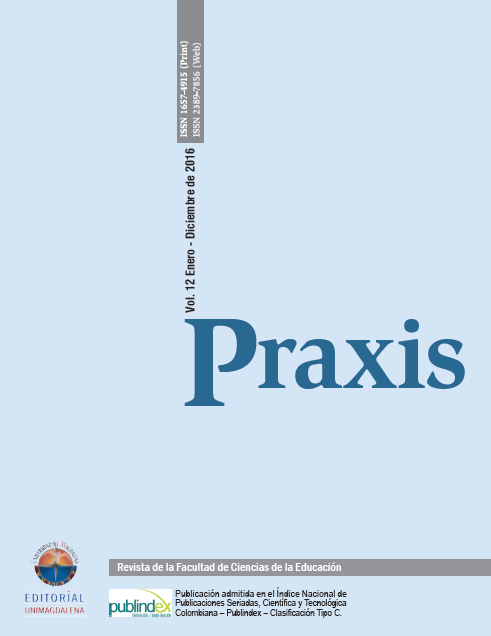Abstract
This article is the result of a process of research done in the IE Carlos Arturo Duque Ramirez from Puerto Nare. The objective was to understand the stories of some teachers as possible pedagogical devices to improve teaching practice. We have choosen narrative as methodology. The main findings are summarized in enabling comprise: 1) the confession of the story of the teacher as a powerful tool to guide teaching practice; 2) unveiled that knowledge of itself the master himself by theming itself to improve, discipline is essential in the field of education; 3) understand that the student is a text that is open to be readby the teacher; 4) understand that the students are not problems for the school, I just have not known how to read.References
Bolívar, A., Domino, J., & Fernández, M.(2001). La investigación bibliográfica-narrativa en educación. Enfoque y metodología, Madrid: La Muralla, S.A.
Foucault, M. (2014). Obrar mal, decir la verdad: función de la confesión de la Justicia. Curso de Lovain, 1981: Argentina: Siglo veintiuno Editores Argentina S.A
Foucault, M. (2012). Hermenéutica del sujeto, Argentina: Altamira, p. 39
González, J. (2014) ¿Qué es la Filosofía? La potencia de una pregunta
imposible; Buenos Aires, Argentina: Biblos.
Mosquera, C. E. (2015). Rumiar sobre el positivismo o trasformar la práctica educativapedagógica docente. Actualidades Pedagógicas, (65), 217-228.Recuperadohttp://revistas.lasalle.edu.co/index.php/ap/article/viewFile/2912/2771
Mosquera, C.E y Rondón, I. (2016). Repensar la escuela: mi confesión, un texto, los estudiantesotros textos. Revista EDUCARE. Vol 19, N3. Barquisimeto
Noro, J. E. (2012), La matriz de la escuela moderna: ¿escuela sagrada o escuela profana? Configuración, crisis y perspectivas. Tomo I: orígenes modernos. Tomo II: Evolución, categorías y propuestas. Editorial Académica Española.
Noro, J. E. (2015). Sistema educativo y universidad, interrogantes y debates iniciales. (Seminario junio de 2012). Rosario, Argentina.
Ortiz, A. (2011). Hacia una nueva clasificación de los modelos pedagógicos: el pensamiento
configuracional como paradigma científico y educativo del siglo XXI. Revista Praxis. N° 10. p.121 – 17. Recuperado de http://revistas.unimagdalena.edu.co/index.php/praxis/article/view/18
Romero, J. & Romero, P. (2013), La Marrana. Infidelidad, celos y melancolía. Un novela de la educación. Homo sapiens. Rosario
Rosas, C. A (2014).El paciente como “texto” según Ricoeur: implicaciones en bioética. Revista Bioética, vol. 22, núm. 2, 2014, pp. 234-240. Recuperado de http://www.scielo.br/pdf/bioet/v22n2/05.pdf
Ricoeur, P. (2000). Narratividad, fenomenología y hermenéutica. En. Ranzueque G. A. (ed.) Horizontes del relato. Lecturas y conversaciones con Paul Ricoeur. Universidad Autónoma de Madrid.
Ricoeur, P. (1996). Sí mismo como otro: Siglo XXI. México
Runge, A. K., & Muñoz, D. A (2012). Los docentes y la tematización de sí: Formación y narración de sí en clave antropocrítica. Medellín: Universidad de Antioquia.
Ureña, Y, y Villalobos, W.(2011). La gestión del Conocimiento en instituciones universitarias tecnológicas. Práxis. N 7,p.155-180. Recuperado de http://revistas.unimagdalena.edu.co/index.php/praxis/article/view/20

